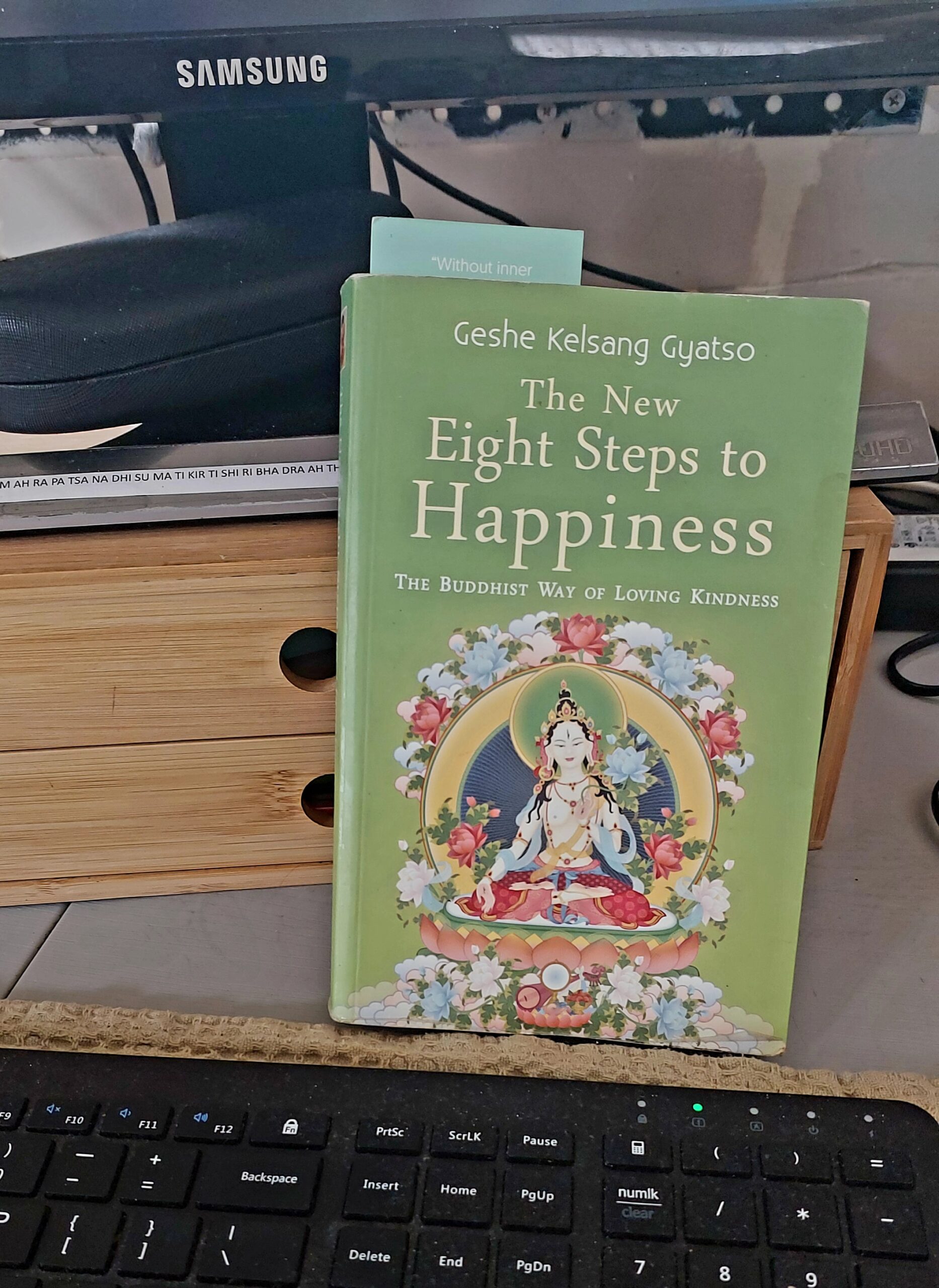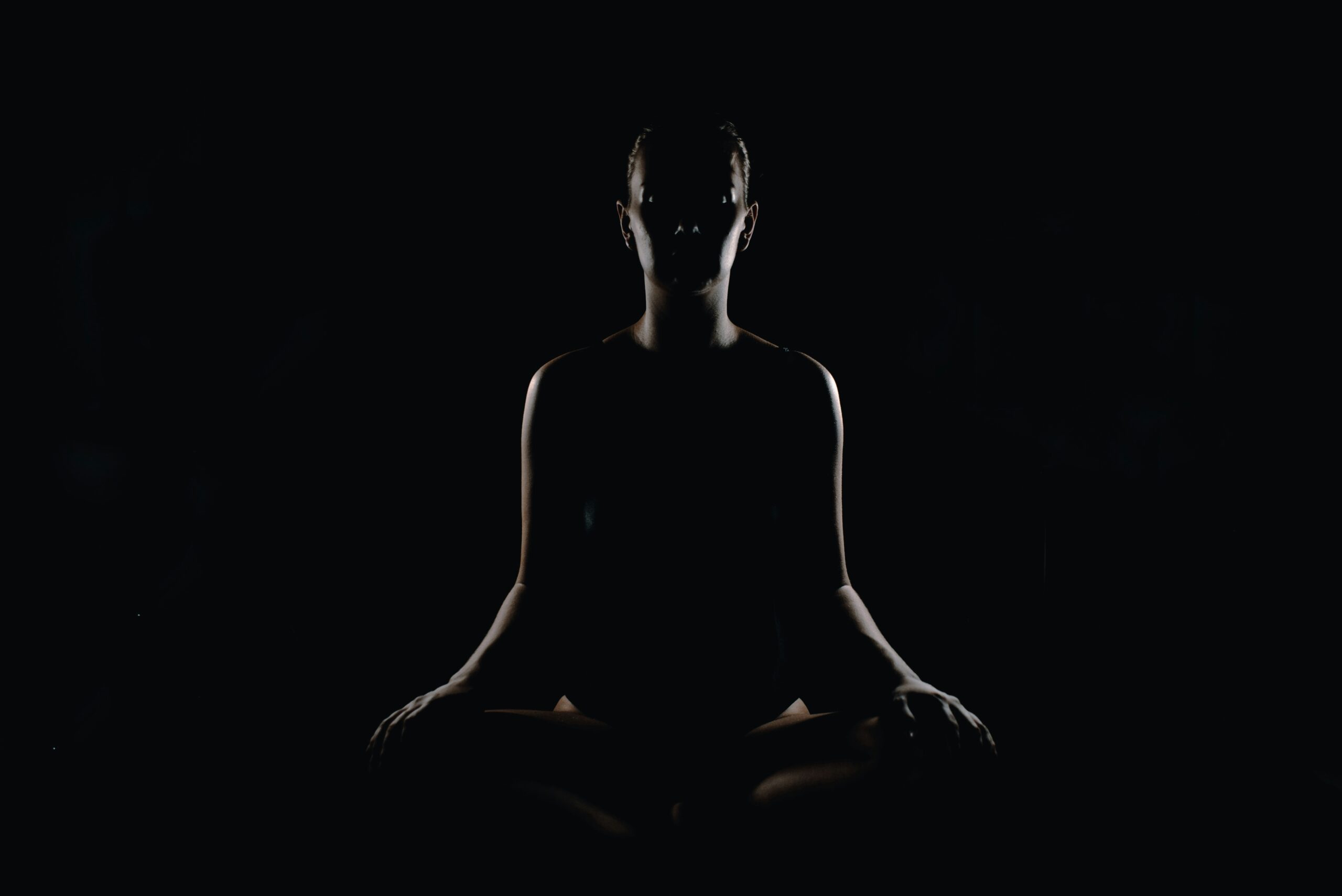Promises, Promises…
As students of the 12 Steps, we are familiar with the promises. Although, “That feeling of uselessness and self-pity will disappear” has yet to come true for me.
However, ‘The Promises’ would be an impressive list of accomplishments for people like us, alcoholics who are powerless over people, places, and things. *see below
But before you go off to apply for sainthood…

Image by Mike Mather
Consider this list of promises from the dharma:
- Perfect all your virtues
- Solve all your problems
- Fulfil all your wishes
- Develop the power to help all others in the most beneficial and appropriate way
These are the promises of developing Ultimate Bodhichitta as described by Venerable Langri Tangpa in Eight Verses of Training The Mind in the 11th Century. The commentary of this special text to which I often refer is the Eight Steps To Happiness by Geshe Kelsang Gyatso.
How far is 20 steps…really?
- It is barely the stumble from the bar to the restroom at most bars!
- It’s not even a safe smoking distance from our kids’ playground equipment.
- We walk that far to sit at the back of the bus.
- People will travel further to cross the street to avoid us.
Self-cherishing Ignorance
In ‘Eight Steps’, Geshe-la says, “Until now we have cherished our self above all others, and for as long as we continue to do this our suffering will never end. However, if we learn to cherish all beings more than our self, we will soon enjoy the bliss of Buddhahood…all we need to do is stop cherishing our self and learn to cherish others”.
At the essence of this dictum is the message also of the AA recovery message — powerlessness, good orderly direction, service, and unity.
“Selfishness, self-centredness! That, we think, is the root of our troubles. Driven by a hundred forms of fear, self-delusion, self-seeking, and self-pity, we step on the toes of our fellows, and they retaliate”.

Image by Mike Mather
Good Orderly Direction
Because problems don’t exist outside our mind, we can transform any situation into either a problem or an opportunity.
With the mind of Bodhichitta, anger, attachment, and jealousy have no power over us.
Alcoholics drink for a lot of reasons, and the greatest reason is that they’re alcoholic.
Besides this, there are external circumstances which will drive a man to drink.
They can be split into
- I can’t get what I want
- what I got I don’t want
- people shit me
If an alcoholic could generate a mind of Bodhichitta, there wouldn’t be any issue.
What is The Solution?
We all tend to live our lives painfully unaware that our self-cherishing ignorance is keeping us from evolving past this Samsaric existence of suffering.
That we could simply live a life of service and compassion and thereby move toward Nirvana is information that we seemingly cannot hear very easily.
Are the teachings of Buddha too loud or too quiet?
It seems that the plight of the suffering alcoholic and the suffering non-Buddhist are akin.
Does it take an existential crisis for us to gain the motivation to seek enlightenment?
How much pain is enough, before we can turn the focus of our life around and begin to help others with their suffering?
Do we have to hit rock-bottom to accept the instructions and live a life of meaning and, maybe, peace?
So many questions, Michael.
What is the solution?
Letting Go
Grasping is a term that is used in Buddhism far more than in other traditions. Grasping at our own independent existent ‘I’ is a topic for a complete book and beyond my ability to explain succinctly here. But believing that I am more important than all others is part of this mindset that leads me to all sorts of destructive behaviour and, possibly even, addiction. (controversial opinion)
If I can let go of my self-grasping ignorance and turn my wishes to attaining happiness for others, my life improves. This is the collision of addiction recovery and ultimate Bodhichitta and the main point of this essay.
And how can I best serve all sentient beings?
Langri Tangpa suggests that developing our skills in cherishing others is a quick and sure way to Enlightenment, and as a Buddha we can help all others to attain happiness and freedom from suffering.

Photo by Max on Unsplash
Quick Story
There is an analogy in the book which goes like this:
When we want a cup of tea, our main wish is to drink tea, but to fulfil this wish we naturally developed the secondary wish to find a cup.
Just as finding a cup is the means to accomplish our goal of drinking tea, so attaining enlightenment is the means to accomplish our ultimate goal of benefiting all living beings.
This ties in with the 12th step of recovery…we need to stay sober and be willing to go to any length (even 20 steps) and then we can help others.
In this way, a Buddhist’s approach to the 12th step of AA is slightly different from others.
The ultimate goal is to benefit others, and therefore we must follow the programme of recovery, service, and unity.
Keep Going
That is the theory in a nutshell.
Our principle of doing things ‘One day at a time’ is sound. We can do things for one day, that if we had to commit to doing for a lifetime, would seem insurmountable. Each day, with fresh resolve, we can do the next right thing (whatever that is for you and your HP).
But here is the sticking point.
We have to keep going in this direction NO MATTER WHAT.
The story I loved in my early days of recovery was this: no matter where I am, if I know which way Sydney is and keep going in that direction, I will arrive in Sydney eventually. Even if I get distracted along the way and take short-cuts, detours, sightseeing, stop-overs, days off travelling, succumb to bad conditions, break down, break-up, break away…if I keep heading towards Sydney… I will be in Sydney eventually.
Enjoy the journey.

Leave a Reply